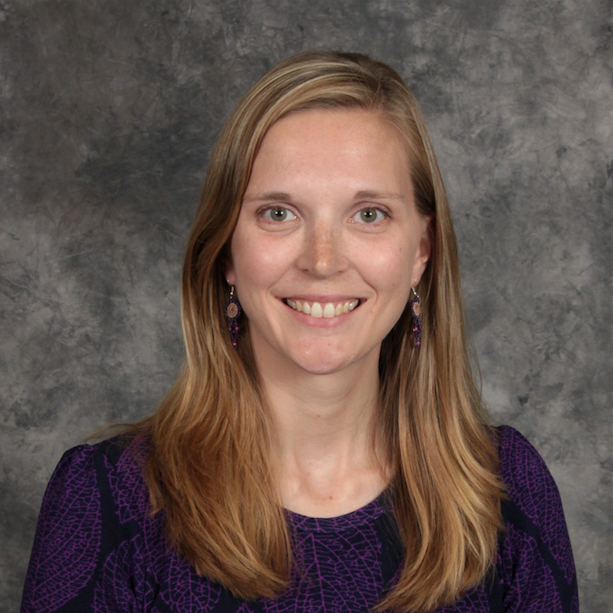Chief Ivan Blunka School is a preK–12 school located in the Alaska bush community of New Stuyahok. In New Stuyahok, hunting, fishing, and subsisting off the land aren’t hobbies but a necessity for survival due to the lack of traditional economic opportunities. Our community is only accessible by air or boat, and even then only when the weather cooperates. Everything we need to run our school, from toilet paper to textbooks, is flown in via single-engine aircraft.
The biggest challenge our students face is gaining exposure to all of the college and career choices that are available to them. Our students do not encounter the casual exposure to these opportunities that students in more urban settings experience. I feel that a major part of my responsibilities as assistant principal is to provide my students in every grade with every possible opportunity to see what options are out there and provide them with equal access to an amazing future of their choice.
I never want students to feel like they are missing out on something because of where they are from.
One opportunity students in rural Alaska miss out on is college visits. We use technology to host virtual college and postsecondary training program visits for our juniors and seniors each year. We have had admissions counselors and former students video chat to show our students their campuses, talk about what kinds of programs they offer, the application process, financial aid, and what recreation opportunities are available. The most beneficial part of these virtual visits is the opportunity for students to ask questions.
In rural Alaska, student travel opportunities are extremely expensive. It often takes creative funding, excessive fundraising, and being an expert travel agent to make travel opportunities possible for our students. But all of that work is so worth it. Students who travel learn how to interact with people who are different from themselves, learn how to navigate in unfamiliar places, and experience opportunities they never knew existed. Last year, I was fortunate enough to chaperone my student council officers on a trip to Washington, D.C., for the National Close Up program. The trip across the country was a huge investment in time and money, but it was worth every penny spent and every minute in airports for one moment, my proudest moment as an Alaskan educator.
During our last day in Washington, we visited the National Museum of the American Indian. There was a small section of the museum dedicated to the Yup’ik culture. My students were so proud to see their culture represented in a national museum. As we excitedly talked about the familiar pictures and artifacts, some of the other museum guests overheard that our group was from Alaska and struck up conversations with the students. These students, who were once so shy that they would have never considered holding a conversation with a stranger, proudly shared that they were Alaska Natives and that they were Yup’ik. These three students answered every question they were asked with pride and confidence, and I have never been prouder!

We rely on the connections we have made in our community, across Alaska, and as far flung as Minnesota and Hawaii and beyond. When we can’t take students out of the village, we bring opportunities to our students. We have had a graphic designer and videographer from Minnesota teach classes to our students when she traveled to our village to work on a documentary project, and she even had students assist her. While on a senior trip in Hawaii, a connection with a tour guide led a student to a new guitar and love of music. We have had visiting artists, experts who suture skin, and doctors teach lessons and share their careers with our students. We have made positive connections with our legislators in the state government to provide our students with amazing learning opportunities. And last but not least, we have had local community members and former students visit classes to talk about their jobs or the postsecondary opportunities they have pursued.
Finally, it’s important to instill a sense of pride in our students about the culture and community they come from. They may be experiencing an opportunity gap from someone else’s point of view, but they have so many opportunities to experience things no one else outside of rural Alaska will ever experience. Our students have lives full of rich, meaningful experiences, with a close connection to their own culture most people can only dream of. For every opportunity they may “miss out on” by living in rural Alaska, they are provided with so much more in return.
Opportunity gaps exist for students beyond rural Alaska. I challenge my fellow leaders in education to find innovative ways to close the gaps for your students, no matter where they live or what their background is, while at the same time instilling a sense of pride in the culture and community they come from.
Meghan Redmond is the assistant principal at Chief Ivan Blunka School, a preK–12 school in New Stuyahok, AK. New Stuyahok is off the road system and only accessible by air or boat. Meghan has worked in rural Alaska for 10 years and is the 2019 NASSP National Assistant Principal of the Year. Follow her on Twitter (@alaska22redmond) and the Chief Ivan Blunka School on Facebook at the “CIBS Eagles Fan Page.”



